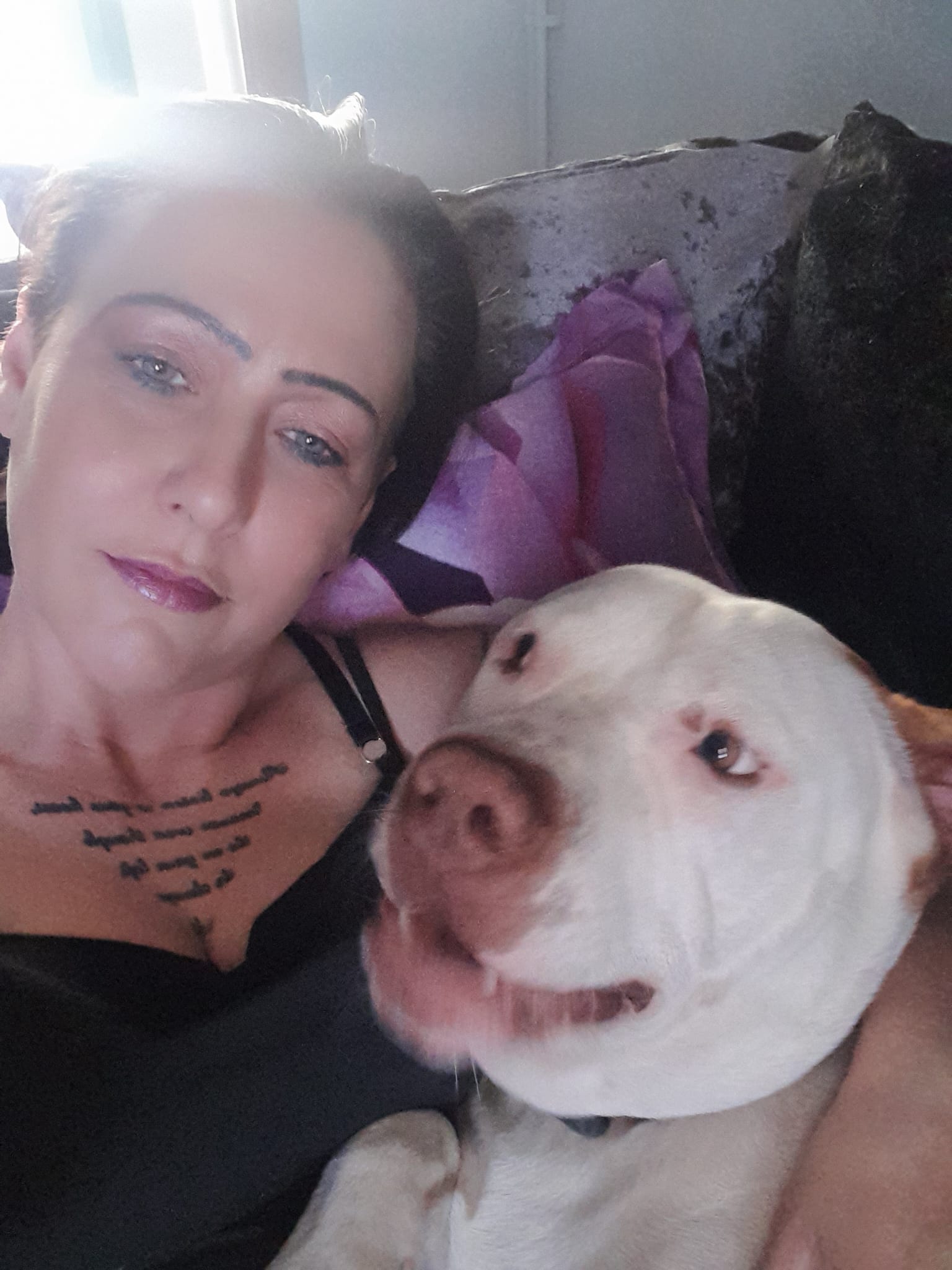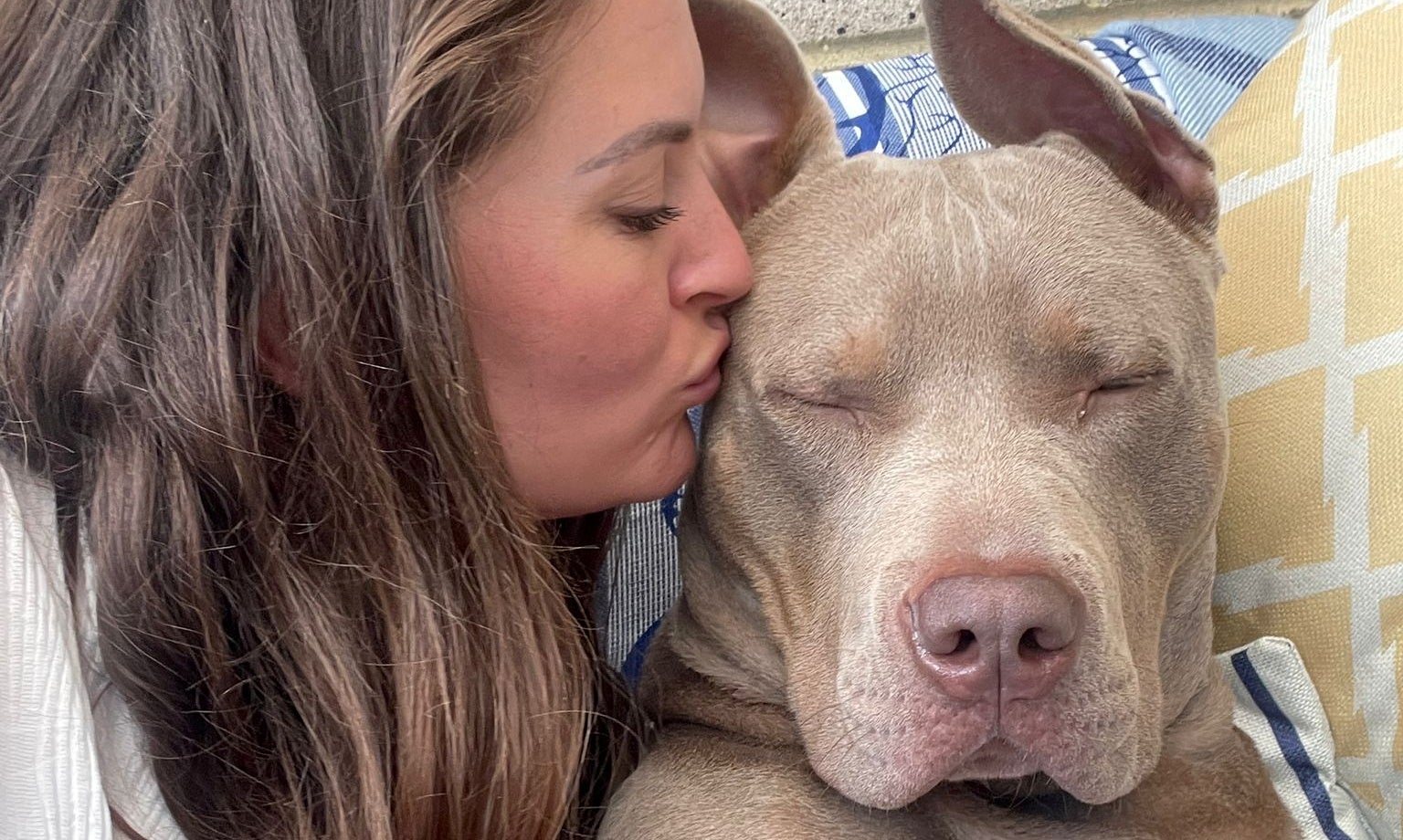An XL bully owner mauled by a dog in her garden has hit out at a year-old ban on the breed after figures obtained by The Independent showed there were at least 23,000 reported dog attacks in the 12 months since it began.
It became illegal to own an XL bully, the largest type of American bully dog, without an exemption certificate from 1 February last year after former prime minister Rishi Sunak declared the breed a danger to communities.
The move came after a string of dog attacks but was criticised by charities, which said a ban on the breed was unfair to responsible XL bully owners and their pets, with at least 848 euthanised last year.
A year on from the ban, figures obtained exclusively from freedom of information (FOI) requests to 32 police forces in England and Wales show there were 23,064 reported dog attacks over the 12 months to 31 January this year.
The real figure will be higher, with three forces – West Midlands, Sussex and Greater Manchester – providing data for only 11 months of the latest 12-month period.
The number, which is the equivalent of more than 60 attacks a day, is an increase on the year before and well up on the 14,212 attacks recorded five years ago.
The slight rise could be partly down to an update in Crown Prosecution Service guidance last year that said dog-on-dog attacks could potentially be included for court prosecutions, although there has been no change in law on it.

Police chiefs warned in January that the ban would be no “overnight fix”. Last May, mother Angeline Mahal was killed by one of her XL bully dogs in Hornchurch, while the previous month, Wayne Stevens was killed by his brother’s Cane Corso cross in Derby.
In February of this year, 19-year-old Morgan Dorsett died after being attacked by an XL bully in Bristol.
Summer Trezise said she was attacked by a dog while defending her three-year-old XL bully in her garden in Burnley. After hearing a squeal, the 47-year-old ran outside to find the other dog biting at her pet Marshall’s face through a garden fence.
While pulling her dog away, Ms Trezise, who also owns three other dogs, said she was bitten and scratched on her arms. She was left with a £3,500 veterinary bill, while her dog still bears scars on his face and has a deformed ear. The Independent has contacted Lancashire Police over the incident in March last year.

On the ban on XL bully dogs, the former lorry driver said: “It [dog attacks] is nothing to do with the dogs – it’s 100 per cent owners who buy the breeds as status and mistreat them and then can’t control them. If it’s not an XL bully, it will be another dog breed that irresponsible owners will be putting on treadmills to toughen up and turn into an aggressive animal, while all the responsible dog owners and the dogs suffer.
“Any dog can kill, even a chihuahua if it isn’t looked after properly. If you have a dog owner who is not dog friendly and doesn’t see the signs, then it doesn’t matter the breed. These attack figures prove the point.”
Some of the dog attacks reported to police did include XL bully dogs being involved, according to the FOI data – but as it is not mandatory for officers to log the breed of the dog, the numbers did not give a clear enough picture of attacks by the breed.
Under rules introduced by the XL bully ban, people could keep the breed if they received an exemption certificate which meant they had to buy insurance, microchip the dog and keep it on a lead and muzzled in public.
Accorded to Defra, around 60,000 certificates were issued before 1 February, while compensation was paid out to owners for euthanasia in 326 cases.
More than 800 XL bully dogs were also put down by police forces, according to the National Police Chiefs Council (NPCC), which estimated the legislation will have cost £25m in kennel costs and vet bills by April.
Last year, which includes January before the ban came in, West Midlands Police destroyed 249 banned breed dogs, up from 23 in 2023.
But while the force, which is the second largest in the country after the Metropolitan Police, recorded 74 XL bully dogs being involved in offences of dogs dangerously out of control in 2024, it also logged 65 Staffordshire bull terriers, 60 German shepherds and 50 Staffordshire bull terrier cross breeds.
In December, campaigners lost a High Court challenge over the XL bully ban. Led by Sophie Coulthard and the group Don’t Ban Me, they said the restrictions were based on unreliable material and without proper analysis. An appeal has since been launched.

Dr Samantha Gaines, from the RSPCA, told The Independent: “Protecting public safety must be a priority but the current approach to dog control is not achieving this – instead, it is failing to protect the public while also compromising dog welfare.
“It is imperative that we see a reduction in dog bite incidents and this requires a focus on responsible dog ownership. Aggressive behaviour in dogs can be prevented by focusing on how dogs are bred and reared and by providing the right training, making sure pets are properly cared for – and are healthy, happy and under control.”
She added: “Any dog, regardless of their breed, has the potential to bite and whether or not a dog develops aggressive behaviour is a complex interaction between genetics and lifetime experiences.”
Dr Gaines, who is head of the charity’s companion welfare team, wants the government to explore licensing in a bid to promote responsible ownership and to issue stronger punishments for those who are irresponsible.

Patrick O’Hara, the NPCC’s tactical lead for dangerous dogs, said in January no force had reported a reduction in dog attack incidents since the ban. He added: “We are probably not going to see a change year on year. We are probably looking at generational change in terms of the life of a dog.”
Since last year, Mr O’Hara said an additional 100 dog liaison officers have been recruited by forces in England and Wales, with a further 40 to be trained this coming year. The policing body wants forces resourced properly to meet the demand and a renewed focus on education over responsible dog ownership.
“We police to the law and will continue to robustly do so to keep our communities safe,” a spokesperson told The Independent this week.
A Defra spokesperson said: “The ban on XL bullies is there to protect public safety and we expect all XL bully owners to comply with the strict conditions.
“Ongoing dog attacks show we need to do more to protect public safety. We will continue to encourage responsible dog ownership across all breeds of dog and to consider whether the current dog control rules are sufficient to ensure communities are protected.”


